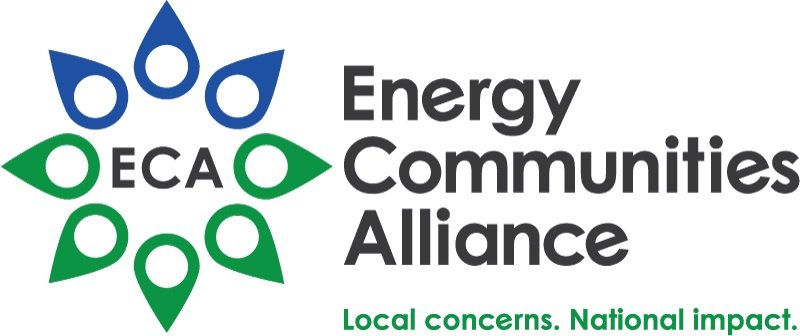GAO Released Open Matters for Congressional Consideration Since 2000 and 9% are Energy Related
Last week GAO released “Recommendations for Congress: Action Can Produce Billions of Dollars in Financial and Other Benefits”. In this publication GAO reported on their recommendations to Congress. Since 2000, they have recommended over 1,000 matters to Congress that would help improve federal programs and save money. As of March 2024, 242 matters have remained open, including 21 energy related matters. The earliest open recommendation is from 2017. Below is each open recommendation related to nuclear matters from GAO to Congress.
To enhance the Department of Energy’s (DOE) ability to make risk-based decisions for the treatment of Hanford supplemental low-activity (LAW), Congress should consider clarifying, in a manner that does not impair the regulatory authorities of the Environmental Protection Agency and the state of Washington, DOE's authority at Hanford to determine, in consultation with the Nuclear Regulatory Commission, whether portions of the supplemental LAW can be managed as a waste type other than high-level waste.
Related Legislation: 117th Congress: S. 4765
Congress should consider taking action to indicate how the Department of Energy should proceed with the disposal of West Valley's transuranic waste and, if necessary, to amend the appropriate federal legislation to create a legal pathway for its disposal.
Congress should consider amending the Nuclear Waste Policy Act to authorize a new consent-based process for siting, developing, and constructing consolidated interim storage and permanent repository facilities for commercial spent nuclear fuel.
Related Legislation: 118th Congress: H.R. 1051; S. 404; S. 2443 117th Congress: H.R. 6901; S. 4660
Congress should consider creating a mechanism, such as an independent board, to provide political insulation and continuity of leadership for managing the spent nuclear fuel disposal program.
Congress should consider restructuring the Nuclear Waste Fund so funds used to develop, construct, and operate a permanent repository are based on the commercial spent nuclear fuel program's life cycle costs.
Congress should consider directing the Department of Energy to develop and implement an integrated waste management strategy, consistent with any amendments to the Nuclear Waste Policy Act that includes plans for the transportation, interim storage, and permanent disposal of spent nuclear fuel.
Congress should consider clarifying, in a manner that does not impair the regulatory authorities of the Environmental Protection Agency and the state of Washington, the Department of Energy's authority at Hanford to determine, with the Nuclear Regulatory Commission involvement, that residual tank waste can be managed as a waste type other than high-level waste.
Related legislation: 117th Congress: S. 4765
To enhance the Department of Energy’s (DOE) ability to make risk-informed decisions for the treatment of Hanford supplemental Low Activity Waste (LAW), Congress should consider clarifying, in a manner that does not impair the regulatory authorities of the Environmental Protection Agency and any state, DOE's authority to determine, in consultation with the Nuclear Regulatory Commission, whether portions of the tank waste that can be managed as a waste type other than high-level waste and can be disposed of outside the state of Washington.
Related legislation: 117th Congress: S. 4765
In support of the Test Bed Initiative and in a manner that does not impair any state's authority to determine whether to accept waste for disposal, Congress should consider (i) authorizing the Department of Energy to classify the volumes of waste corresponding to the second phase of the Test Bed Initiative for out-of-state disposal as something other than high-level waste (HLW) and (ii) specifying that the Resource Conservation and Recovery Act of 1976's HLW vitrification standard does not apply to this volume of waste.
Related legislation: 117th Congress: S. 4765
: Congress should consider implementing a mechanism—such as requiring regular Department of Energy (DOE) reporting on project funding and status—to provide greater oversight and accountability of DOE carbon capture and storage demonstration project expenditures.
Congress should consider enacting legislation to establish a term appointment, with a term length sufficient to provide focused and sustained leadership, for the Assistant Secretary in the Department of Energy with responsibility for nuclear waste management under section 203(a)(8) of the Department of Energy Organization Act (42 U.S.C. 7133(a)(8)), currently, the Assistant Secretary for the Department of Energy’s Office of Environmental Management.
Congress should consider enacting legislation to establish a new, dedicated the Department of Energy’s Under Secretary position for nuclear waste management and environmental cleanup.
Congress should consider enacting legislation to clarify the Department of Energy's authority to sell depleted uranium, including any conditions connected to such sales.
Congress should consider clarifying the Nuclear Regulatory Commission's legal authority to relinquish regulation of greater-than-Class C (GTCC) waste disposal to agreement states, as well as clarifying its regulatory role for any Department of Energy facility that may accept GTCC waste.
Congress should consider providing direction to Department of Energy (DOE) on greater than-Class C waste disposal, so that DOE can proceed with a decision.
